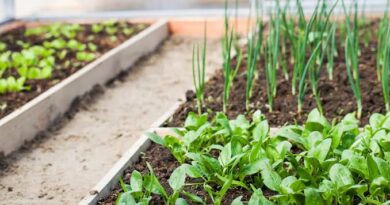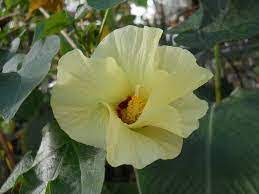The Lemon Petals: Economic Importance, Uses, and By-Products
Lemon petals, often referred to as the corolla of the lemon flower, are the showy, colorful structures that surround the reproductive organs of the flower. Botanically classified as part of the whorl of petals (corolla), they play a significant role in attracting pollinators and protecting the developing reproductive parts of the flower.
In lemon flowers, the petals are typically white and may have a waxy texture. This white coloration serves multiple purposes in the reproductive cycle of the plant. Firstly, it contrasts with the green sepals and enhances the visibility of the flower to potential pollinators, such as bees and butterflies. This visual attraction is crucial for the pollination process, as these insects are drawn to the flower to collect nectar and inadvertently transfer pollen between flowers.
The shape and arrangement of lemon petals also contribute to their role in attracting pollinators. They are usually arranged in a radial pattern around the center of the flower, forming a prominent cup-like structure that guides insects towards the reproductive organs. Some lemon varieties may have slightly different petal shapes or faint tinges of other colors, but the predominant color remains white.
Beyond their role in pollinator attraction, lemon petals also provide protection to the delicate reproductive structures within the flower. While less robust than the sepals, they help shield the developing ovary and stamens from physical damage and excessive sunlight, which could potentially harm the reproductive success of the plant.
During the early stages of flower development, lemon petals enclose and protect the developing floral organs. As the flower matures, the petals gradually unfold and open, exposing the stamens and pistil to facilitate pollination. In some citrus species, the petals may eventually fall away as the flower completes its reproductive function, making way for the growth of the fruit.
From a cultural and symbolic perspective, lemon petals have also found their place in various human traditions and aesthetics. Their delicate appearance and pleasant fragrance have made them popular in ornamental gardens and floral arrangements. In some cultures, lemon petals are used in culinary practices and herbal remedies for their aromatic properties.
Lemon petals are essential components of the lemon flower, serving both functional and aesthetic purposes in the reproductive cycle of the plant. Their white coloration and attractive form play crucial roles in attracting pollinators, protecting reproductive structures, and contributing to the overall beauty and utility of the lemon plant in various cultural contexts.
The Economic Importance and Uses of Lemon Petals

1. Perfume Industry: Lemon petals are used in perfumes due to their pleasant citrus scent; extracts create high-quality fragrances.
2. Aromatherapy: Essential oils from lemon petals are used to promote relaxation and improve mood.
3. Cosmetic Products: Lemon petal extracts are used in skincare products for their antioxidant properties, rejuvenating and protecting the skin.
4. Herbal Teas: Dried lemon petals are used to make herbal teas, offering a refreshing and health-boosting beverage.
5. Culinary Uses: Fresh or dried lemon petals add a subtle citrus flavor and decorative touch to culinary dishes.
6. Medicinal Uses: Compounds in lemon petals have anti-inflammatory and antioxidant properties, useful in traditional medicine for treating ailments.
7. Potpourri: Dried lemon petals are used in potpourri for their fragrance and aesthetic appeal, enhancing home decor.
8. Crafting: Lemon petals are used in crafting projects like making scented sachets and decorative items.
9. Natural Dye: Lemon petals are used to extract natural dyes for coloring fabrics and other materials.
10. Eco-friendly Cleaning Products: Antibacterial properties of lemon petal extracts make them useful in natural cleaning products.
11. Floral Arrangements: Lemon petals add color and fragrance to floral arrangements.
12. Nutritional Supplements: Lemon petal extracts are used in nutritional supplements for their health benefits.
13. Health Drinks: Lemon petal extracts are added to health drinks and smoothies for their refreshing taste and nutritional value.
14. Flavoring Agents: Lemon petals are used as a natural flavoring agent in various food and beverage products.
15. Bath Products: Lemon petals are used in bath salts, bath bombs, and soaps for their soothing fragrance and skin benefits.
16. Air Fresheners: Lemon petal extracts are used in natural air fresheners for a pleasant atmosphere.
17. Pest Repellents: Natural compounds in lemon petals are used to make eco-friendly pest repellents.
18. Beekeeping: Lemon flowers, including their petals, attract bees essential for pollination and honey production.
Read Also: Siamese Cat Breed (Felis catus) Description and Complete Care Guide
The Products and By-products That Can Be Derived From Lemon Petals

1. Essential Oils: Lemon petals are steam distilled to extract essential oils used in aromatherapy, perfumes, and cleaning products.
2. Herbal Tea: Dried lemon petals are steeped in hot water to make a refreshing and health-boosting tea.
3. Natural Dye: Petals are processed to extract dyes used in textile and craft industries.
4. Cosmetic Extracts: Lemon petal extracts are used in creams, lotions, and serums for their antioxidant and anti-inflammatory properties.
5. Potpourri: Dried petals are mixed with other fragrant materials to create potpourri for home decor.
6. Bath Products: Lemon petals are used in bath salts, bath bombs, and soaps for their soothing fragrance and skin benefits.
7. Craft Materials: Dried lemon petals are used in crafting scented sachets, candles, and other decorative items.
8. Air Fresheners: Extracts from lemon petals are used to make natural air fresheners.
9. Cleaning Products: Lemon petal extracts are incorporated into eco-friendly cleaning products for their antibacterial properties.
10. Flavoring Agents: Lemon petals are used as a natural flavoring agent in various food and beverage products.
11. Health Supplements: Extracts from lemon petals are formulated into supplements to boost health and well-being.
12. Nutritional Drinks: Lemon petal extracts are added to health drinks and smoothies for their refreshing taste and nutritional value.
13. Floral Arrangements: Fresh lemon petals are used in floral arrangements for their color and fragrance.
14. Beekeeping: Lemon petals attract bees, contributing to pollination and honey production.
15. Pest Repellents: Natural compounds in lemon petals are used to make eco-friendly pest repellents.
16. Aromatherapy Products: Lemon petal essential oils are used in diffusers and other aromatherapy products.
17. Culinary Garnishes: Fresh or dried lemon petals are used as garnishes in culinary dishes for their flavor and decorative appeal.
Read Also: Savannah Cat Breed (Felis catus × Leptailurus serval) Description and Complete Care Guide
Frequently Asked Questions (FAQ’s) About Lemon Petals

1. What are lemon petals?
Lemon petals are the soft, colorful parts of the lemon flower that surround the reproductive organs; they are known for their fragrance and delicate texture.
2. How can lemon petals be used in cooking?
Lemon petals can be used as a garnish, added to salads, desserts, or used to infuse flavors into beverages and dishes.
3. Are lemon petals safe to consume?
Yes, lemon petals are generally safe to consume, especially when grown organically and without chemical pesticides.
4. What are the health benefits of lemon petals?
Lemon petals contain antioxidants and anti-inflammatory compounds that can benefit health by reducing inflammation and protecting against oxidative stress.
5. How are lemon petals used in skincare?
Extracts from lemon petals are used in skincare products for their rejuvenating and protective properties, helping to improve skin texture and appearance.
6. Can lemon petals be used in making tea?
Yes, dried lemon petals can be used to make a fragrant and health-boosting herbal tea.
7. How do lemon petals benefit the environment?
Lemon petals attract pollinators like bees, which are essential for the ecosystem and agricultural productivity.
8. What products can be made from lemon petals?
Products made from lemon petals include essential oils, herbal teas, natural dyes, cosmetic products, potpourri, and more.
9. How are lemon petals processed into essential oils?
Lemon petals are steam distilled to extract essential oils, which are then used in various aromatherapy and cosmetic products.
10. Are there any medicinal uses for lemon petals?
Yes, lemon petals are used in traditional medicine for their anti-inflammatory and antioxidant properties, helping to treat various ailments.
Read Also: Estuary and Coastal Pollution of Brackish Water









